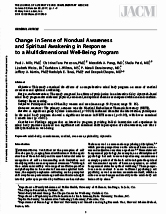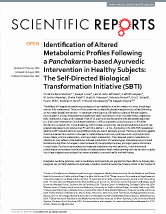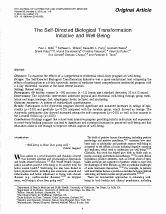Self-Directed Biological Transformation Initiative (SBTI)
Past Studies
Updates:
Overview
This study is a multi-center collaborative effort looking at multiple physical and emotional effects of a 6-day immersion into Ayurvedic mind-body practices. The goal of the Self-Directed Biological Transformation Initiative (SBTI) is to determine whether the practices of Ayurveda, meditation, and yoga can reverse biological markers of aging, alter cellular biology, genomics, and the microbiome. We invited 120 participants into this groundbreaking research study in collaboration with Harvard University, the University of California San Francisco, Mount Sinai Hospital, Duke University, Scripps Translational Science Institute, Sanford Burnham Medical Research Institute, and the University of California San Diego. This is the most complete study to date looking at the effects of a whole-systems approach on the mind-body physiology. Included in this study were measurements of psychological wellbeing, markers of inflammation and cell aging, metabolomics, genomics, and changes in microbiome between participants in an Ayurvedic immersion program versus a control group.
It has become increasingly recognized that ancient practices for wellbeing, including meditation, yoga, and specific herbs, can improve health and promote longevity. While studies have documented such effects for a variety of individual practices for wellbeing, few studies have taken a more systems biology approach that is simultaneously inclusive of numerous practices. The purpose of this study was to find out more about the health and psychological effects of participation in the Perfect Health course, the Chopra Center’s signature 6-day Mind-Body-Spirit wellness program, as compared to similar individuals who do not participate in the course, and rather participate in solely a vacation week at the Omni La Costa Resort and Spa in Carlsbad, CA.
Synopsis
This study examined the effects of a 6-day Panchakarma-based Ayurvedic intervention which provided holistic instruction and experience in mind-body healing. The study reported significant and sustained increases in well-being, including spirituality, gratitude and self-compassion.
This study is a collaboration with:



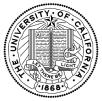

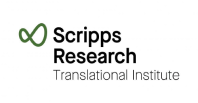
Study testimonials:
Huffington post articles:
- Multi-Institutional Collaborative Clinical Trial to Examine Health Benefits of Integrative Lifestyle Practices at the Chopra Center for Wellbeing (Self-Directed Biological Transformation Initiative [SBTI] study will use latest mobile health sensors and genomic/cellular/metabolomics biomarkers)
- Self-Directed Biological Transformation Initiative—A New Frontier ‘Consciousome’
- Radical Well Being: Where We Need to Go: Part 1
Radical Well Being: Where We Need to Go: Part 2 - What I Learned from Deepak Chopra’s Presentation In Aspen
Study Co-Chairs
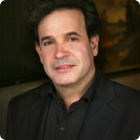
DEEPAK CHOPRA, MD
“My country has been enriched by the contributions of more than a million Indian Americans, which includes Dr. Deepak Chopra, the pioneer of alternative medicine.”

RUDOLPH TANZI, PhD
“Einstein’s brain. Defying expectations that big thoughts required a big brain, Einstein’s brain actually weighed 10 percent less than the average brain.”
The Scientific Research Teams
Three teams of specialists will be studying multiple facets of the effects of meditation on the human body. They include:
Genetic Biomarker and Gene Activity
Team Leaders:
Rudolph E. Tanzi, PhD and Eric Schadt, PhD
Blood-based Markers of Cellular Aging
Team Leaders:
Nobel Laureate, Dr. Elizabeth Blackburn, Elissa Epel, Ph.D., and Paul J. Mills, PhD
General Physical and Heart Health
Team Leaders:
Eric J. Topol, MD and Steven R. Steinhubl, MD

